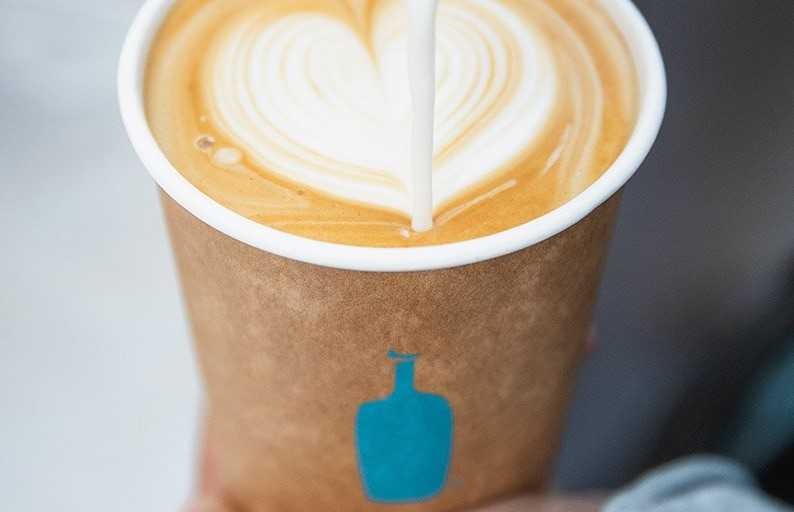OAKLAND, Calif., US – Blue Bottle Coffee announced today its commitment to achieve carbon neutrality by 2024. This extends to the entire brand, in the United States and Asia, and from coffee and ingredient sourcing to guest-use and end-of-life greenhouse gas (GHG) emissions for product and packaging. Blue Bottle will attain carbon neutrality for its GHG emissions first by reducing as much as possible—including through work with coffee producers to sustain and expand regenerative agricultural practices—then by supporting carbon removal and high-quality offsetting projects for unabated GHG emissions.
Today’s announcement represents a significant next step towards the brand’s long-term sustainability goals of leading the food service industry in the boldest, most comprehensive waste and GHG emissions reduction movement.
This year, the company focused efforts to reduce GHG emissions across four key areas: coffee sourcing, electricity, dairy, and waste. The company also committed to help scale regenerative agriculture as part of its 2024 carbon neutrality target. Blue Bottle made a multi-year commitment to purchase the first available high-quality, registry-certified agricultural carbon credits. Produced by Carbon by Indigo, these credits support U.S. farmers transitioning from conventional practices toward more beneficial agriculture.
In 2022 the company will publish its accelerated roadmap to achieving carbon neutrality by 2024.
“Since our founding in 2002, sustainability has been a core value at Blue Bottle. Sustainability for us means caring for people and planet,” said Karl Strovink, CEO of Blue Bottle Coffee. “We are steadfast in providing guests with the highest quality coffee and cafe experience without the need to compromise on our values.”
In 2020, Blue Bottle held true to the commitment of compensating for the greenhouse gas (GHG) emissions associated with its e-commerce business on orders shipped throughout the United States.
This next major milestone of carbon neutrality by 2024 will involve fundamental changes to Blue Bottle’s business operations and partnerships with suppliers. During the past year, Blue Bottle has taken the following actions:
Coffee Sourcing: Blue Bottle is completing its first round of sustainability audits across the majority of its coffee purchasing. Audit reports will assist Blue Bottle in integrating climate targets into its work with coffee suppliers.
Electricity: Blue Bottle reduced GHG emissions associated with its electricity usage first in the United States and Japan by purchasing renewable energy certificates for a portion of cafes and one production site.
Dairy: Blue Bottle led the change to introduce oat milk in its Asia markets, having long offered oat milk at no extra charge in U.S. cafes. In June 2021, test cafes in Northern and Southern California markets invoked oat milk as the default in milk-based drinks for in-cafe and mobile orders, resulting in 8% less cow’s milk use in these cafes.
Waste: Blue Bottle is on track to achieve zero waste operations for half its U.S. cafes by the end of 2021, with a goal of reaching all U.S. cafes by 2023. This target requires cafes to divert 90% of their waste from landfill, incineration, or the environment. Blue Bottle’s Jackson Square cafe opened this spring with zero waste operations, reaching a 98% diversion rate in its first month. In 2022, Blue Bottle will scale zero waste operations to its U.S. production sites and begin implementation in Asia.
“We invite guests to join us in forging positive change—from wasting less and reusing more to adopting new product offerings with lower environmental footprints—we are committed to accelerating progress but cannot do this alone,” said Strovink. “We hope our guests will join us in taking bold steps on climate action, one cup of coffee and one day at a time.”


















